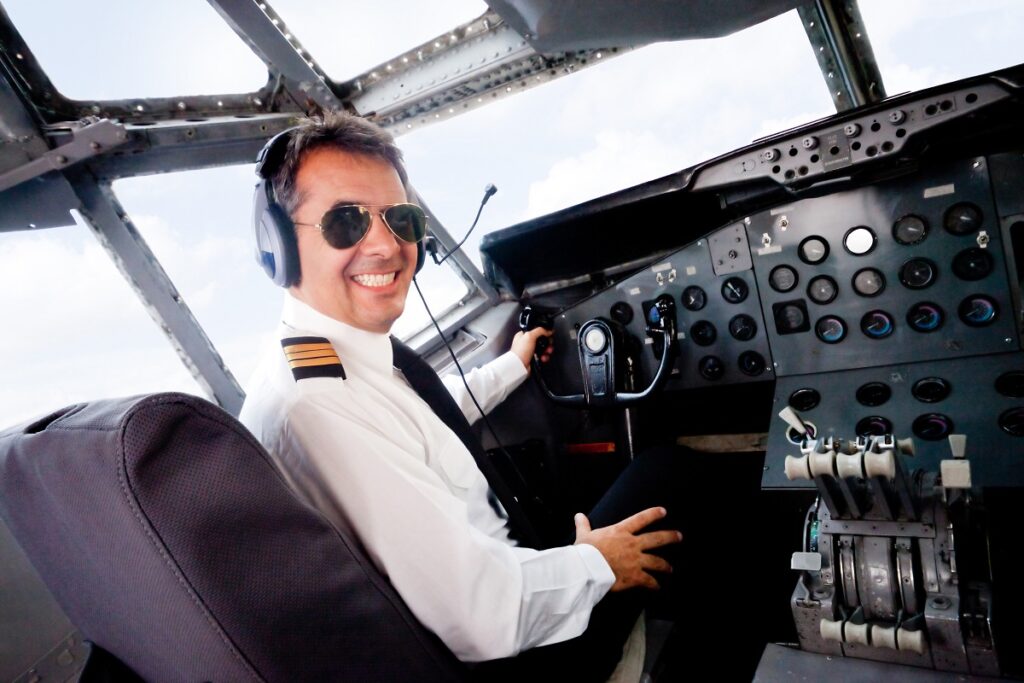- Acquiring proper education and focusing on multi-engine training is crucial for a successful aviation career.
- Building flight experience through various activities and logging numerous hours is fundamental for pilots.
- Networking and staying informed about industry trends accelerate career growth in aviation.
- Setting realistic goals and developing soft skills like communication and leadership are essential for pilots.
Becoming a successful pilot requires more than just passion and determination. It takes a lot of work, dedication, and proper planning. If you have set your heart on becoming a pilot, knowing that your success in this field is not self-evident is essential.
But don’t let that discourage you. With the right mindset, training, and experience, you can achieve your career goal and build a successful career as a pilot. This blog will share essential tips to help you succeed as a pilot.
Get the proper education and training.
The first thing you need to do to build a successful career as a pilot is to ensure you get the proper education and training. You should enroll in an accredited flight school and participate in ground lessons and actual flying.
During your studies, focus on multi-engine training, which will increase your chances of getting hired by airlines and other organizations. During this training, pilots learn to operate aircraft with more than one engine, a fundamental skill when aiming to fly commercial, charter, or cargo airlines.
This training typically involves handling the aircraft under various situations, including engine failure during takeoff, cruise, and landing. Additionally, you should consider taking a pilotage exam to demonstrate your expertise and knowledge.
Build your flight experience.
Flight experience is crucial to success as a pilot. Log as many flight hours as possible as you complete your flight training program. You can start by taking up internships, joining flying clubs, or participating in volunteer work that involves flying.
You can also consider working as a flight instructor to gain experience. The more flight hours you log, the more opportunities you’ll have to fly different aircraft types and build your skills.
Network and stay informed.

Networking is crucial in any field, especially in aviation. Attend career events, participate in conferences, and join aviation associations to meet other pilots and professionals in the field. This will help you get insights into the profession, find job opportunities, and stay informed about industry trends and innovations. Additionally, use online resources such as aviation blogs, forums, and social media pages to get further insights and advice from other pilots.
Set realistic goals.
As you build your career as a pilot, it’s essential to set realistic goals. Consider what aircraft type you want to fly, what regions you wish to operate in, and what positions you want to hold in the future.
This will help you focus your efforts and build a path towards success. Set measurable goals such as the number of flight hours you want to log, the ratings you want to achieve, and the certifications you wish to obtain. Monitor your progress regularly and make adjustments as needed.
Develop soft skills.

In addition to technical skills, developing certain soft skills is essential. These soft skills will ensure that you work well with fellow pilots and other aviation industry professionals and make you stand out as a good candidate for various job roles. These soft skills include the following four:
Communication.
Communication is a vital skill in the aviation industry. As a pilot, it’s essential to be able to communicate clearly with crew members and other personnel on the ground.
Time management.
In the aviation field, you need to be able to manage your time efficiently in order to adhere to safety protocols and schedules. This includes completing pre-flight inspections within set timelines and keeping up with checklists and maintenance tasks.
Problem-solving.
Pilots need to be able to solve problems quickly and effectively. Sometimes, you may have to come up with solutions in the middle of a flight when there are unexpected changes or issues. Being able to think on your feet is an essential skill for pilots.
Leadership.
Leadership is also a key skill for pilots. You need to be able to lead your crew members and guide them through difficult situations. Additionally, you should have the ability to make decisions quickly and effectively when needed.
By acquiring these soft skills, you’ll be able to become a successful pilot and build a successful career in the aviation industry.
A successful career in aviation, particularly as a pilot, demands much more than a love for flying. From acquiring the right education and embracing vital multi-engine training to building extensive flight experience and networking in the industry, every step is crucial. No matter the challenges, remember that the sky is not the limit; it’s just the beginning.

